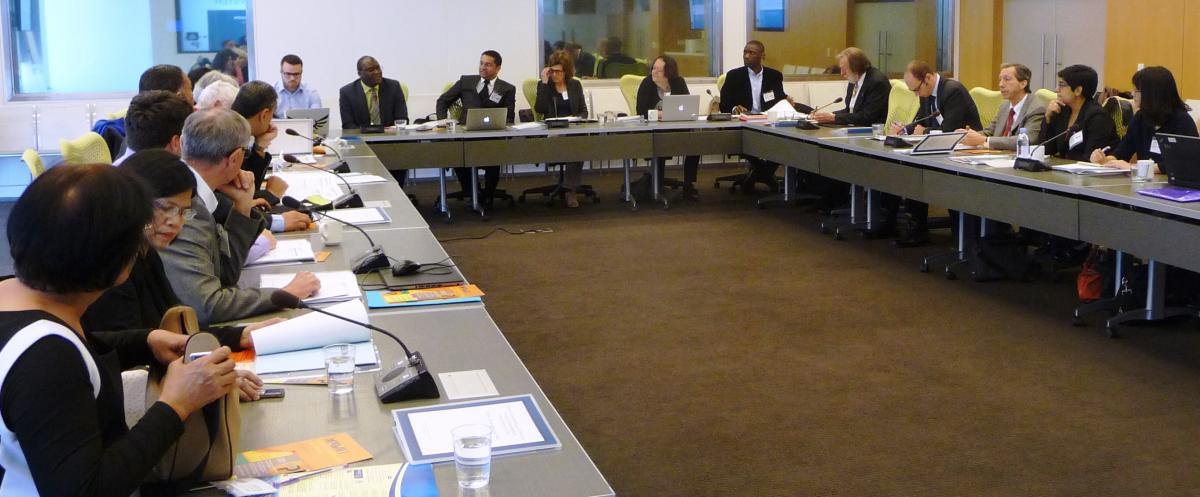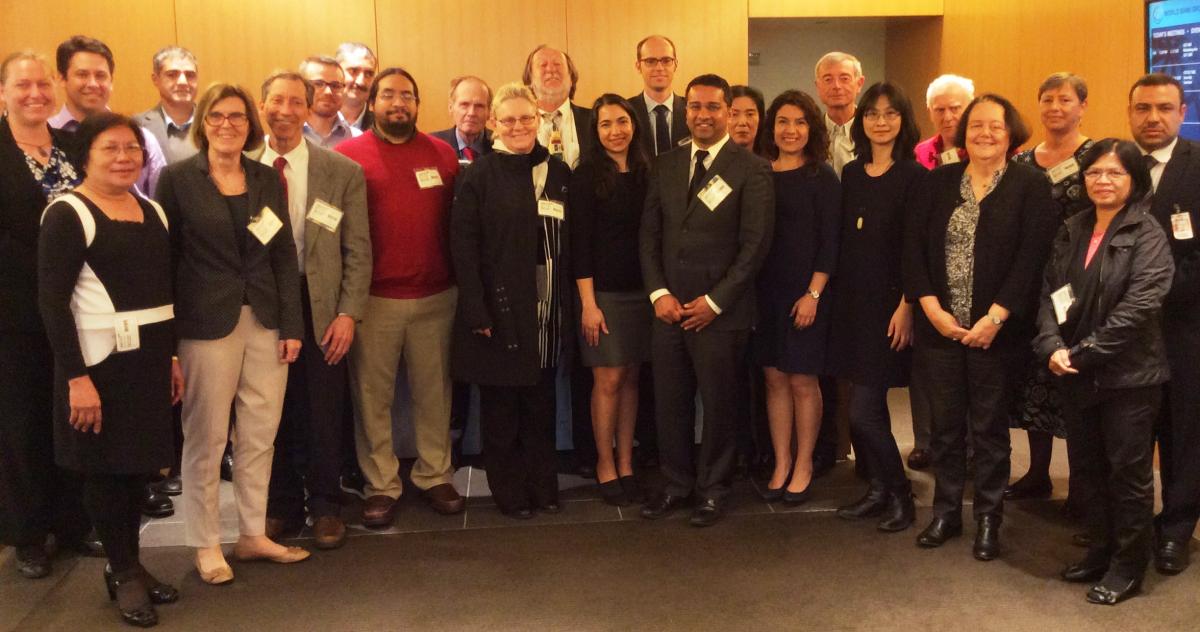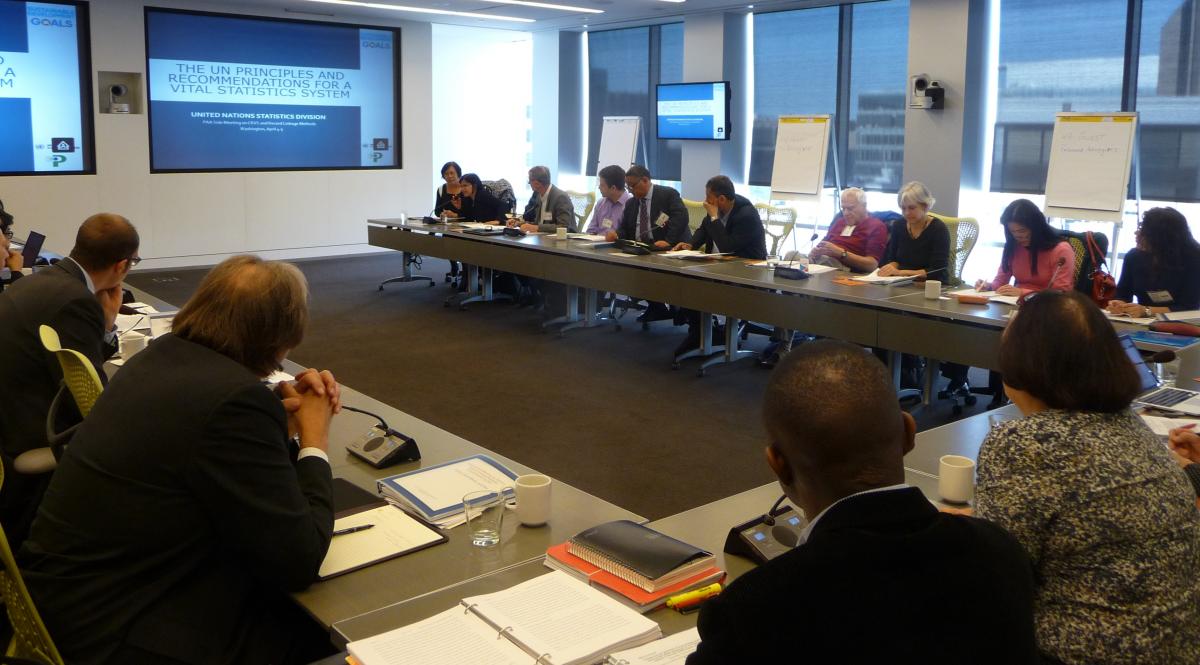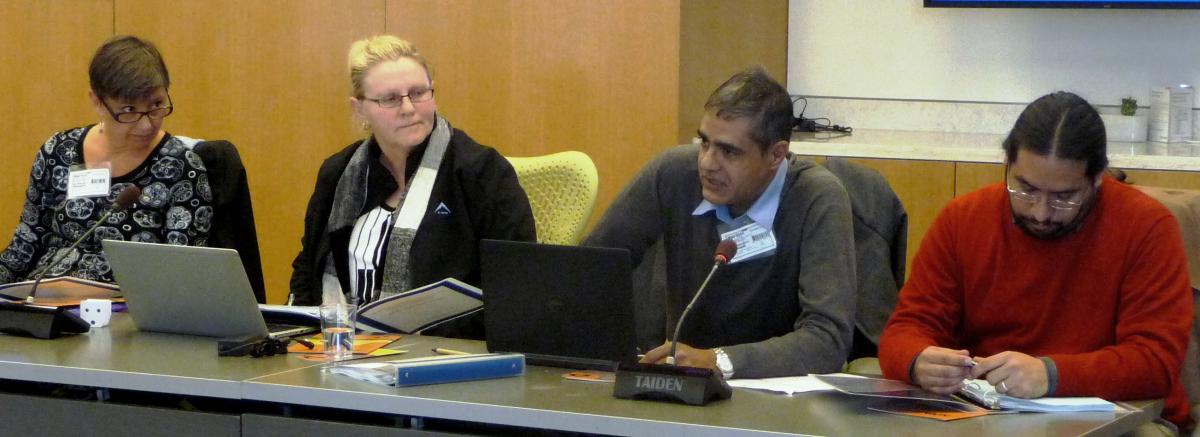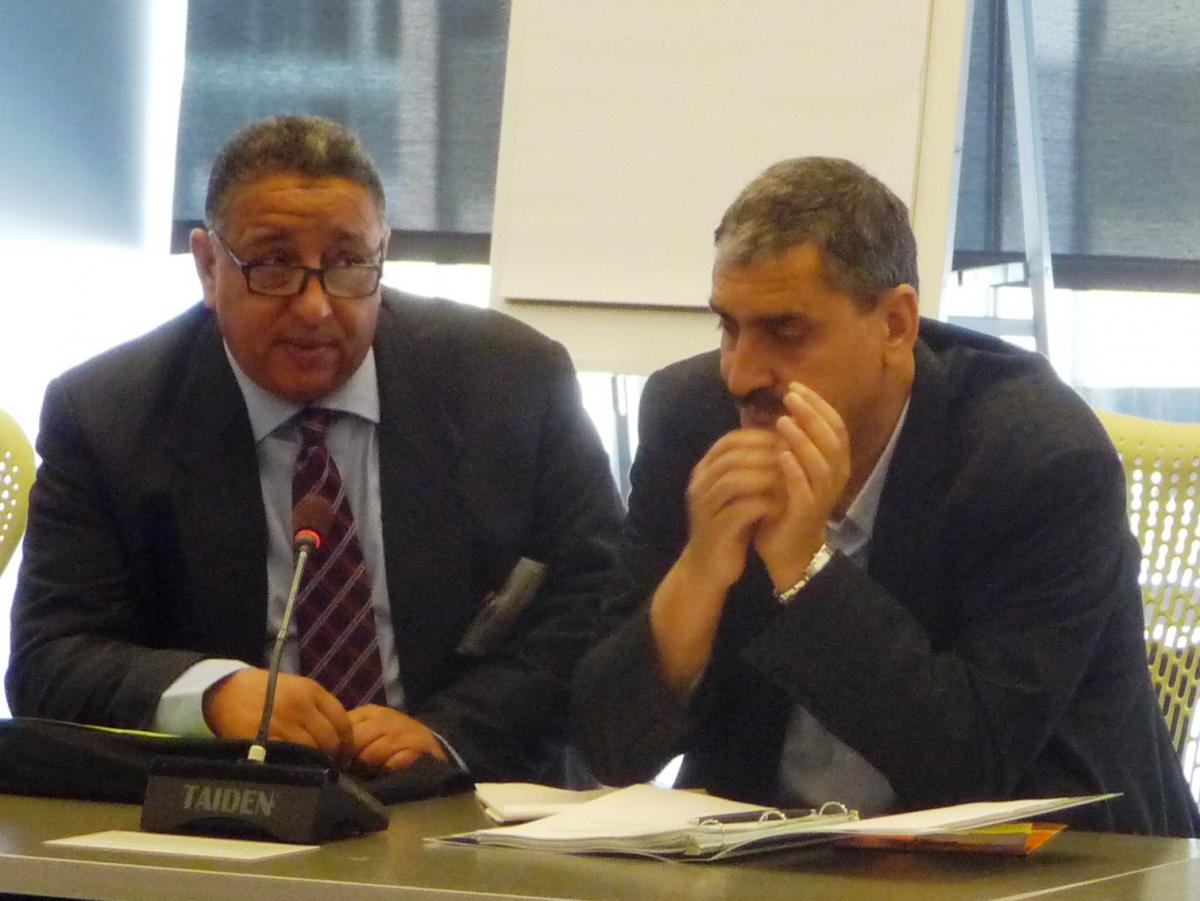Towards the next generation of record-linkage studies to advance data quality assessment of civil registration systems in LMICWashington, D.C., United States, 4-5 April 2016
On April 4-5, 2016, the IUSSP Scientific Panel on Innovations in Strengthening Civil Registration and Vital Statistics (CRVS) Systems held an expert group meeting titled “Towards the next generation of record-linkage studies to advance data quality assessment of civil registration systems in low- and middle-income countries”. This initiative was co-sponsored by the World Bank Group and the Population Association of America and hosted at World Bank headquarters in Washington, D.C.
The meeting is part of the IUSSP’s activities to facilitate contributions by demographers to the 2030 development agenda’s data revolution. The meeting's focus was on the use of direct demographic estimation methods that draw on record-linkage techniques, to assess the completeness and quality of CRVS systems. The meeting’s objectives were three-fold: [1] to document and share lessons learned from recent record linkage studies; [2] to strategize about the design and implementation of such record linkage studies in low-income and middle-income countries; and [3] to facilitate new record linkage projects in 2-3 countries that have well-developed CRVS improvement plans. This initiative was developed to fill a gap in the field by convening a group of methodological experts and practitioners to explore the adaptation of record linkage to CRVS systems. It was also motivated by the need to advance the ‘leave no one behind’ principle of the newly-adopted 2030 development agenda that seeks to improve demographic measurement of differences within countries (in addition to differences between countries).
The meeting brought together a diverse group of 35 researchers and practitioners from Australia, Canada, Egypt, France, Lebanon, New Caledonia, Palestine, Philippines, Switzerland, South Africa, the United Kingdom, and the United States. Participants included academic researchers in demography, statistics and public health, practitioners from national statistical offices, ministries of health, and related agencies, as well as officials from the United Nations, World Bank Group, and the Secretariat for the Pacific Community. The meeting comprised sessions for sharing recent innovations in applying record linkage techniques to assess population data systems in low-, middle-, and high-income countries and facilitated small group discussions to stimulate new collaborative research and field pilot projects.
This initiative is on-track to produce three tangible outputs. First, a video recording of the 2-day meeting will be posted to the IUSSP website. Second, the IUSSP Scientific Panel on Strengthening Innovations in CRVS Systems, in collaboration with the invited participants, is now developing a selection of the presented papers for inclusion in a peer-reviewed journal supplement. Third, meeting participants are now developing three mini projects to build on the collaborations that were strengthened during this meeting and to test the application of new record linkage techniques in Egypt, Palestine, and the Philippines.
For more information about this meeting and its follow-up, IUSSP members may contact Romesh Silva (silva22@un.org).
See also:
Publication Plan: A selection of papers will be submitted for publication as a special collection in a peer-reviewed journal.
Funding: Financial support for the meeting was provided by the William and Flora Hewlett Foundation. |
|

